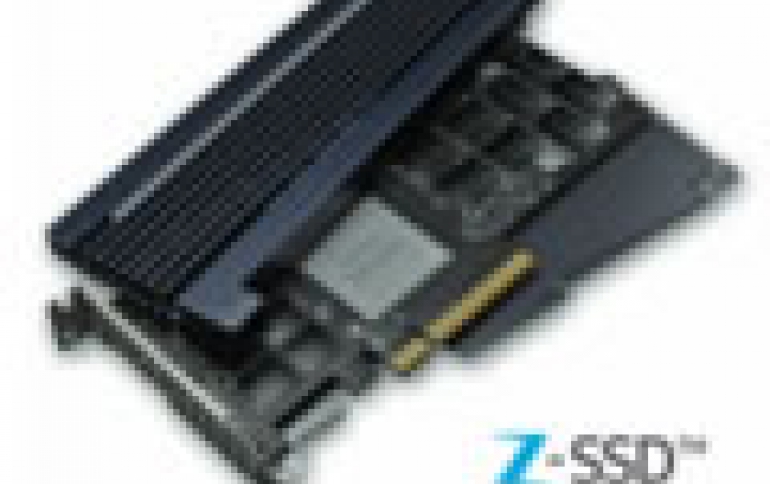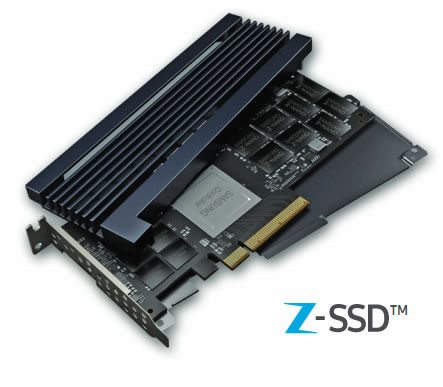
Samsung Says New SZ985 Z-NAND SSD Offers Ultra-Low Latency and High Throughput
Samsung claims that its upcoming SZ985 Z-NAND SSD, based on a special flavor of the company's V-NAND flash, enables a new tier of storage with the highest throughput and lowest latency of any flash storage on the market today.
The company released some figures related to the SZ985 Z-NAND SSD, which has been designed for latency-sensitive, I/O-intensive enterprise applications. While offering superior performance from a NAND-based SSD, Samsung obviously targets Intel's DC P4800X Optane SSDs, by offering almost comparable performance at a much lower price.

The SZ985 has some impressive specifications: up to 3.2 GB/s of sequential read/write throughput and 750,000/170,000 random read/write IOPS. It provides 5.5 times lower latency than today's leading NVMe SSDs.
| Samsung SZ985 Z-NAND SSD |
Intel Optane 3D XPoint |
Samsung PM1725a |
|
|---|---|---|---|
| Interface |
PCIe 3.0 x4 |
PCIe 3.0 x4 |
PCIe 3.0 x8 |
| NAND |
Z-NAND |
3D XPoint |
48-layer 3D TLC NAND |
| Sequential Read/Write (GB/s) |
3.2 / 3.2 |
2.4 / 2 |
6.4 / 3 |
| Random Read/Write IOPS |
750,000 / 170,000 |
550,000 / 500,000 |
1,080,000* / 170,000 |
| Random Read Latency |
12 - 20µs |
10µs |
90µs |
| Random Write Latency (typ) |
16µs |
10µs |
20µs |
| Drive Writes Per Day (DWPD) |
30 |
30 |
5 |
| Capacity |
800 GB |
350 / 750 GB |
1.6 / 3.2 / 6.4 TB |
The company says the SZ985 delivers 12-20µs latency for random reads and 16µs for random writes. These latency numbers are lower than other NAND-based SSDs in the table, although they aren't quite as mind-bending as Intel's Optane. The SZ985's random write performance also lags behind the Optane DC P4800X.
Samsung provided performance results compared to its PM1725a in RocksDB workloads, along with a few synthetic performance measurements. The latency-to-IOPS comparisons highlight similarly solid low-QD performance scaling compared to Intel's Optane SSDs.
In terms of endurance, the SX985 has 30 DWPD of warrantied endurance, which rivals Intel's Optane SSDs.
Samsung hasn't released the mixed random workload specifications, which are a critical aspect of real-world application performance.
Available in an 800GB capacity, the drive could prove a successful storage solution for latency-sensitive, I/O-intensive applications, as long as it is properly priced.





















